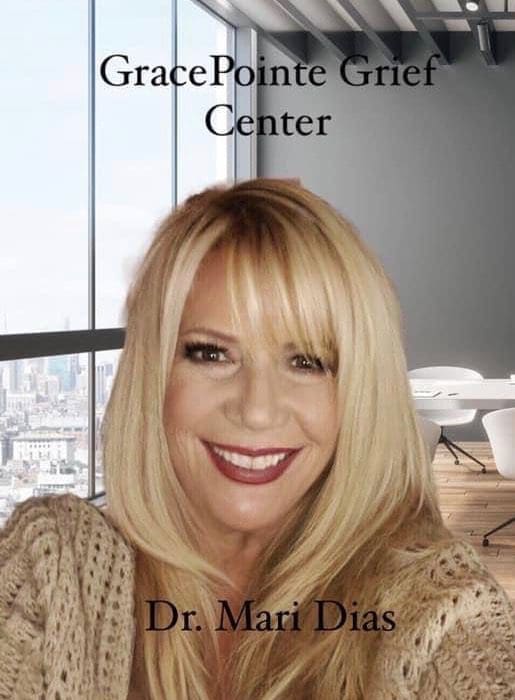Search Posts
Recent Posts
- Vinny Paz to be inducted TODAY into the International Boxing Hall of Fame – CES Boxing June 7, 2025
- In the News… quick recap of the week’s news (6.7.25) June 7, 2025
- Burn with Kearns: Strong without the spend: How scraps became strength tools – Kevin Kearns June 7, 2025
- Rhode Island Weather for June 7, 2025 – Jack Donnelly June 7, 2025
- How to advocate for threatened properties: The Heritage Alliance of Pawtucket June 7, 2025
Categories
Subscribe!
Thanks for subscribing! Please check your email for further instructions.

GriefSpeak: Recognize Mercy – Dr. Mari Dias
By: Dr. Mari Dias
Mercy – “Having a capacity and compassion to forgive and show kindness.”
There is no question that the last year has been rife with psychological issues. We have all experienced loss: loss of touch, freedom, personal peace, freedom of expression, worship and loss of a loved one. During the initial lockdown, we tried to adapt. Bicycles, kayaks, boats, outdoor furniture – anything to make stay-at-home tolerable. These items flew off the shelves and were out of stock online. As did dogs. Rescues were unavailable. Breeders continue to have waitlists for litters a year out. Why? Can owning a pet help us? If so, how? Yes it can. And this is how. Pets can help and heal us as interaction with an animal has been shown to reduce blood pressure and improve overall cardiovascular health. It can also alleviate pain, reduce stress and improve your overall psychological state.
Interacting with animals has been shown to decrease levels of cortisol (a stress-related hormone) and increase oxytocin (the feel-good hormone) and dopamine. This increase and reduction is reciprocal! In fact, animal – assisted therapy was used in medieval Belgium where humans and animals were rehabilitated together. (Therapydogs.com). We are as helpful and healing to a dog as they are to us. Pets can reduce loneliness, increase feelings of social support and boost your mood.
Pet therapy has been around since the Ancient Greeks who used horses to lift the spirits of the severely ill. Farm animals were also used in the 1940’s by the American Red Cross for veterans suffering from injury or illness. Pet therapy builds on human-animal bond. Pet therapy can also make you happier, lessen your depression, reduce boredom and reduce anxiety. (Healthline). In fact, students have shown that dogs can actually recognize human emotions. There is evidence that some dogs are smart enough to tell if their owner, or even a stranger is sad, happy, stressed, pregnant or ill. Dogs are intuitive. Think about those all-knowing eyes and reassuring lick. Their sixth sense is finely tuned to how we feel.
Dogs can also exhibit empathy. Many will comfort us by putting their head on someone’s lap or provide an outstretched paw.
Enter – Mercy. GracePointe Grief welcomes Mercy to our staff. Mercy is a doodle, so no allergy issues for clients. She and her owner are both currently enrolled in pet therapy certification. With a 119% increase of overdoses, 120% increase in suicide and self-harm, and a 94% increase in anxiety, despite the vaccine. I am expanding my practice with my new partner. I took Mercy along for a home visit. (I did tell my clients they were “guinea pigs” as she has not completed her training.) She was a star! She sat in the woman’s lap and allowed my client to stroke and pet her, with an empathetic lick every now and then. My client told the story of the unexpected and violent suicide of a family member, all the while stroking Mercy. My client was calm and reported a perceived decrease in her heart rate (as evidenced by her pulse) and slowed down her rapid breathing. It was a heartwarming, beautiful sight to behold.
Mercy is congenial, loves everyone and gives unconditional love. She does not judge; she just loves and heals. She is obedient (most of the time) and loves her furry friends. Please join me as we literally and figuratively recognize Mercy.
_____

Dr. Mari Dias is a nationally board-certified counselor, holds a Fellow in Thanatology and is certified in both grief counseling and complicated grief. Dias is a Certified death doula, and has a Certificate in Psychological Autopsy.
She is Professor of Clinical Mental Health, Master of Science program, Johnson & Wales University. Dias is the director of GracePointe Grief Center, in North Kingstown, RI. For more information, go to: http://gracepointegrief.com/

Loved this,